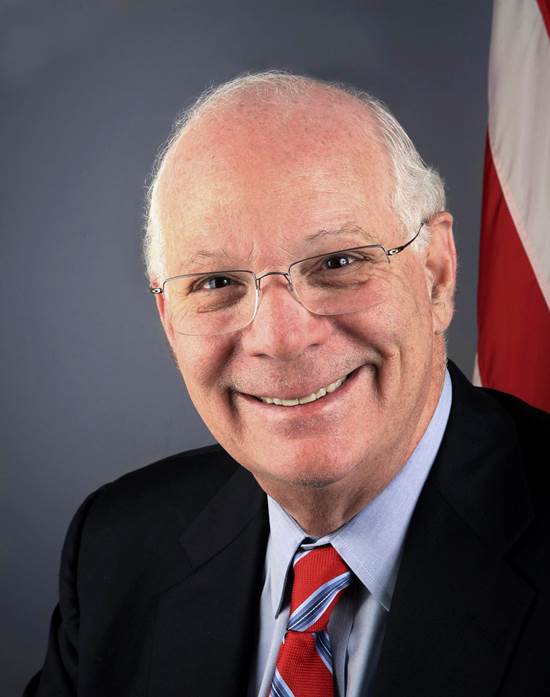CPA Applauds Sen. Ben Cardin Progressive Consumption Tax Bill
News Release: CPA Applauds Sen. Ben Cardin Progressive Consumption Tax Bill
Contact: Sara Haimowitz, sara, 202.688.5145
For immediate release
CPA Applauds Sen. Ben Cardin Progressive Consumption Tax Bill:
Legislation Would Drastically Improve American Producers’ Trade Competitiveness
The Coalition for a Prosperous America (CPA) applauds Senator Ben Cardin (D-MD) for introducing the Progressive Consumption Tax bill yesterday. The bill, if passed, would tremendously improve US trade performance by neutralizing foreign border taxes on our exports. It would exempt most US households from income tax, reduce corporate and individual tax rates, and make our tax system fairer and simpler.
“A trade competitive consumption tax is a top priority for CPA,” said Burl Finkelstein, CPA Board member and Executive Vice President and General Counsel for Kason Industries in Atlanta. “As a business person I see the US tax system as a disincentive to US production and jobs, even for products made to be sold in the US."
“Under the current system US based producers pay corporate or individual tax rates in income and then pay taxes a second time when the goods are sold,” continued Finkelstein. “If US producers sell to other countries most charge a consumption tax when the US producers have already paid US taxes. If we ever want to come out of our current economic malaise we need to make more of what we consume and make our products globally competitive.”
Over 150 countries have consumption taxes (often called Goods and Services Taxes or value added taxes) to reduce reliance on income or other taxes. The tax is “border adjustable” because countries charge them on imported goods and services and rebate the tax on exports.
“After 40 years of tariff reduction with Europe, American producers did not get a benefit at European borders,” said Stumo. “That is because EU countries increased value added taxes to replace the tariff reductions.”
Mexico added a fifteen percent consumption tax as the NAFTA (North American Free Trade Agreement) tariff reductions were negotiated and implemented. Central American countries added a twelve percent consumption tax as the (CAFTA) Central American Free Trade Agreement tariff reductions were implemented. The US simply reduced tariffs without replacing them with border taxes.
“The tariff/consumption tax replacement trend helped America achieve the status as the worst trade performing country in the world in terms of cumulative trade deficits,” continued Stumo. “The fundamental trade principal of reciprocity was violated as the US unilaterally disarmed in the face of growing mercantilism.”
Because consumption taxes are legal under the World Trade Organization rules, the US cannot impose trade sanctions to recover the economic harm. CPA has long favored exploration of trade competitive tax reform to neutralize this problem.
"Sen. Cardin, One of the leading tax experts in the Congress, has finally pointed the way to a 21st-century tax policy for the United States,” said Charles Blum, CPA Government Relations Director and President of IAS Group. “His bill would produce a tax system that is simple and fair while making American producers more globally competitive."
“The tax reform logjam can be solved with the addition of a consumption tax to our system,” said Stumo. “We can drastically reduce corporate and individual income tax rates, exempt most households from income tax liability, and broaden the tax base. Yet there is no tax increase (a Republican concern) and no change to tax progressivity. (a Democrat concern).”
“We at CPA do not see how tax reform can succeed without the inclusion of a consumption tax,” concluded Stumo. “We will be working hard to assist Senator Cardin with this important bill.”


